Health provider Ajinomoto Indonesia shares nutritional literacy and nutritious menus from Dapur Umami through a series of Elderly Programs. From July to November, 426 elderly in 4 cities (Jakarta, Bogor, Bandung, and Tangerang) participated in the LASEHAN (Healthy, Fit, and Happy Elderly) Seminar with Smart Salt. Not only targeting the elderly group, but Elderly Program also shared nutritional literacy and nutritious recipes through the LASEHAN Workshop with dietitians in Yogyakarta, collaborate with ANOKI (Indonesian Sports and Fitness Nutritionist Association) and attended by the Secretary of AsDI (Association of Indonesian Dietitians). This activity also closes the PT Ajinomoto Indonesia Elderly Program series.
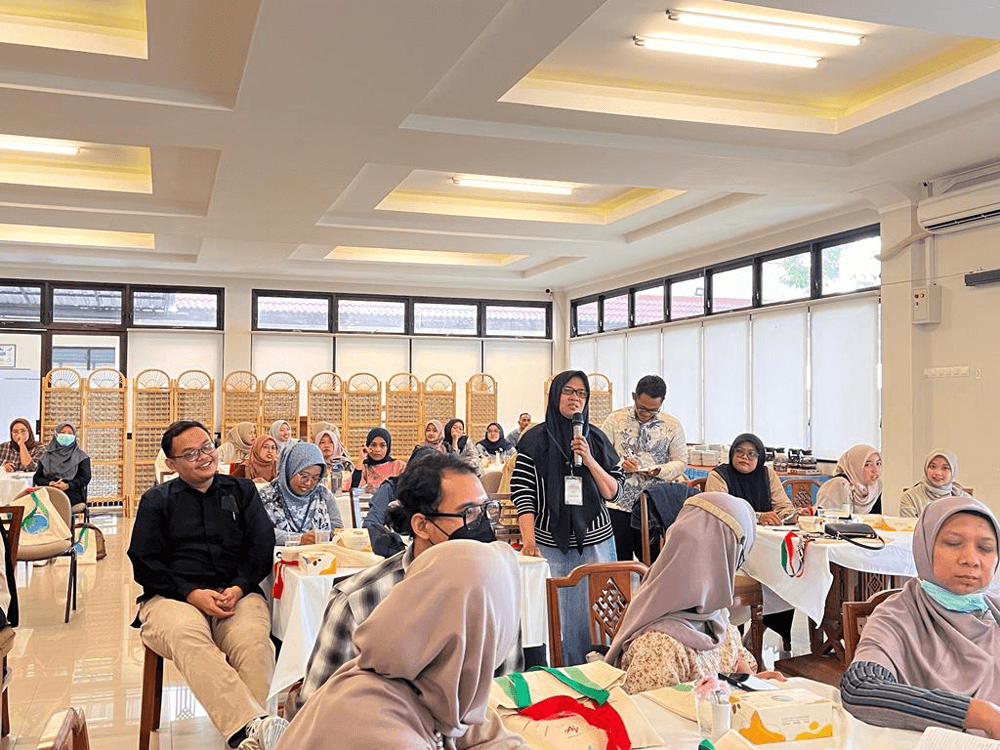
The workshop was attended by 44 dietitians in Yogyakarta. There are three sessions in the series of LASEHAN Workshop activities. First session is the delivery of material by the speaker, namely Dr. Toto Sudargo, S.K.M., M.Kes as a nutrition lecturer from Gadjah Mada University (UGM) and head of the research team for the Elderly Meal Project which was carried out in 2 Nursing Homes in Yogyakarta. On this occasion, Dr. Toto explained the role of nutrition and umami in controlling blood sugar and preventing hypertension, which is the result of a study from the Elderly Meal Project, how the role of nutrition and umami can help improve elderly quality of life seen from research results such as increasing nutritional intake and physical function, reducing systolic and diastolic blood pressure, also decrease in HbA1c which is a diabetes risk parameter. The Elderly Meal Project is a study conducted by providing interventions in the form of provision nutrient-dense foods that are high in protein and low in salt through the Smart Salt concept accompanied by nutritional education.
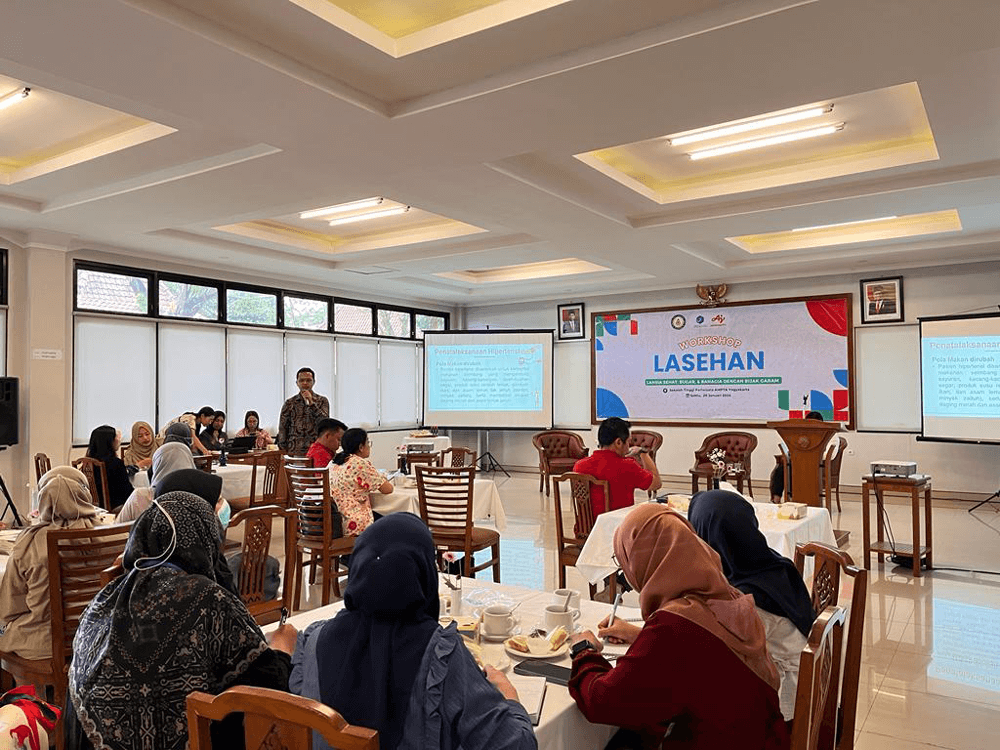
The next session was a Focus Group Discussion (FGD) with the topic of Geriatric Nutrition Case Study guided by Yudhi Adrianto, S.Gz, SE, MKM, AIFO as secretary of AsDI and dietitian from Cipto Mangunkusumo Hospital. In this session, the participants not only calculated nutritional needs and made nutritional diagnoses for patients, but Yudi also shared his experience of using MSG in implementing the DASH Diet for patients suffering from hypertension at the hospital where he practices. The use of a combination of salt and MSG in the diet is part of the nutritional literacy that PT Ajinomoto Indonesia wants to share through this workshop with the nutrition experts present, known as Smart Salt.
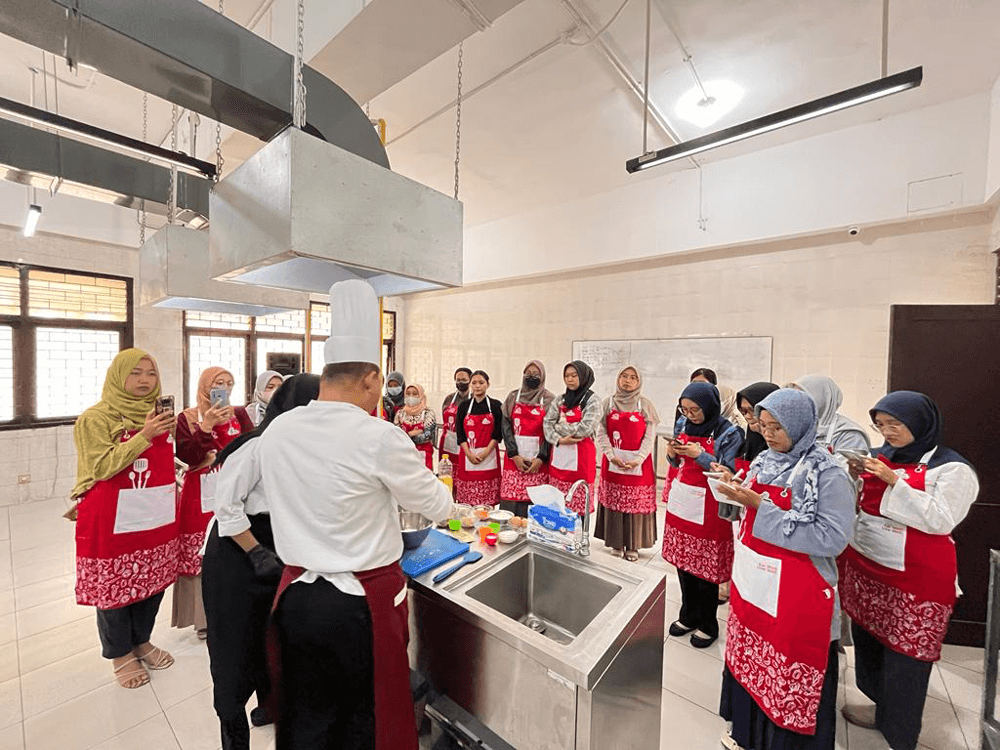
Smart Salt is a solution to reduce the use of salt initiated by AJINOMOTO by adding a little of MSG to the food so that the food remains delicious but with a lower sodium content so that the elderly can eat with a delicious taste without having to worry about the sodium content being excessive.
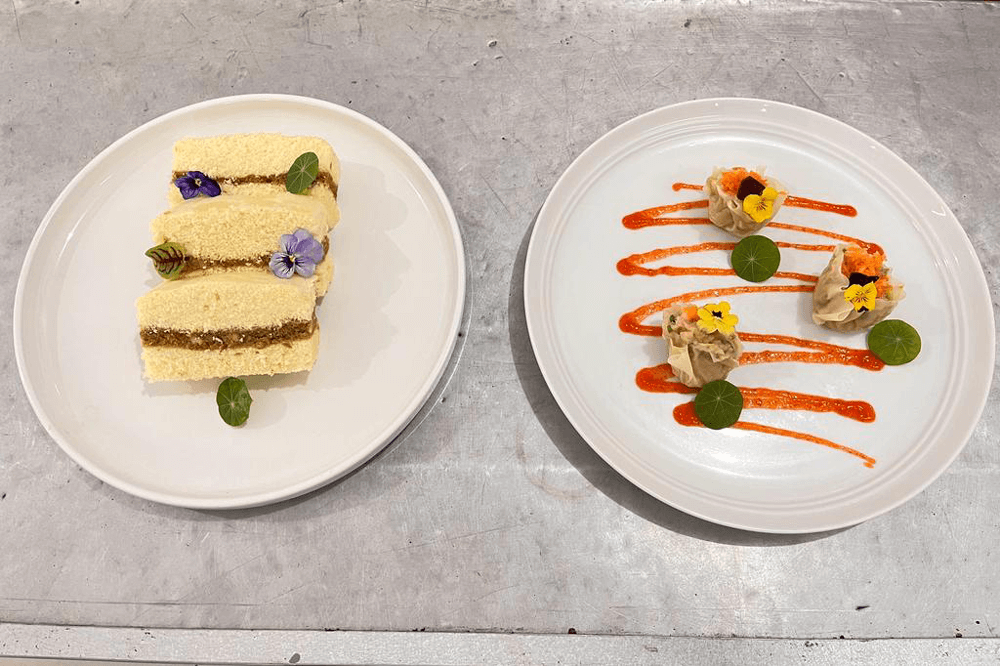
The LASEHAN workshop not only provides material on how to apply Smart Salt in elderly's diet but also invites dietitians to cook a low-salt snack menu from Dapur Umami. Before cooking, Chef Setyo, who is a lecturer from SPT AMPTA Yogyakarta, first provides cooking tips and tricks through a cooking demo, after that in groups dietitians will cook menus that have been prepared from Dapur Umami, namely Dim Sum ala AJI-NO-MOTO® and Bolu Kukus Ayam ala Masako®.
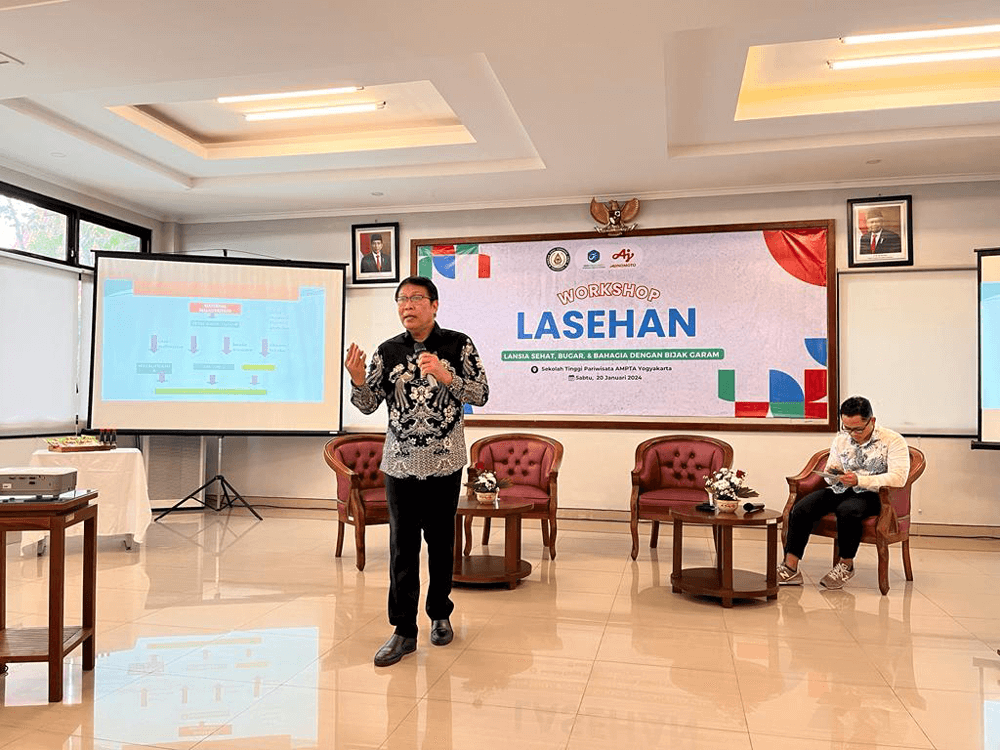
The LASEHAN workshop provided a new experience for dietitians who were among the participants who stated that this workshop was very useful. We were able to learn about various types of diets for hypertension and the use of Ajinomoto in these diets, as well as being able to take part in cooking demonstrations. There are also those who claim that this event corrects negative perceptions regarding MSG. It turns out that MSG has been proven to be safe and has benefits for health such as helping to reduce the use of salt and can be applied in each workplace.